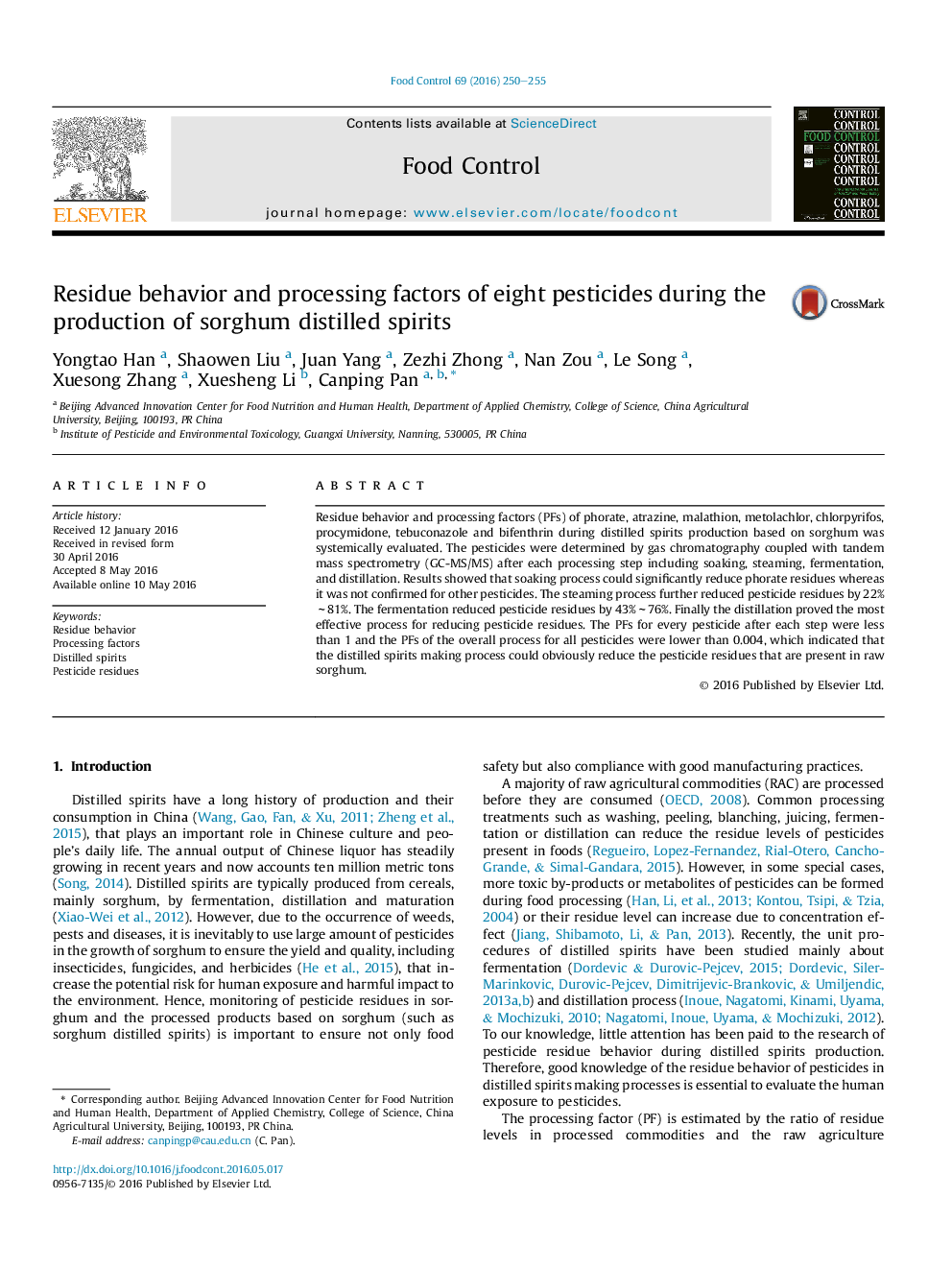| Article ID | Journal | Published Year | Pages | File Type |
|---|---|---|---|---|
| 6390055 | Food Control | 2016 | 6 Pages |
â¢Residue behavior of eight pesticides during distilled spirit production was assessed.â¢The PFs of the eight pesticides were clarified in distilled spirit making process.â¢Soaking significantly reduce phorate residue but not obvious for other pesticides.â¢Fermentation reduced pesticide residues by 43%ï½76% due to biological degradation.â¢Distillation process was proved to be effective for reducing pesticide residue.
Residue behavior and processing factors (PFs) of phorate, atrazine, malathion, metolachlor, chlorpyrifos, procymidone, tebuconazole and bifenthrin during distilled spirits production based on sorghum was systemically evaluated. The pesticides were determined by gas chromatography coupled with tandem mass spectrometry (GC-MS/MS) after each processing step including soaking, steaming, fermentation, and distillation. Results showed that soaking process could significantly reduce phorate residues whereas it was not confirmed for other pesticides. The steaming process further reduced pesticide residues by 22%ï½81%. The fermentation reduced pesticide residues by 43%ï½76%. Finally the distillation proved the most effective process for reducing pesticide residues. The PFs for every pesticide after each step were less than 1 and the PFs of the overall process for all pesticides were lower than 0.004, which indicated that the distilled spirits making process could obviously reduce the pesticide residues that are present in raw sorghum.
